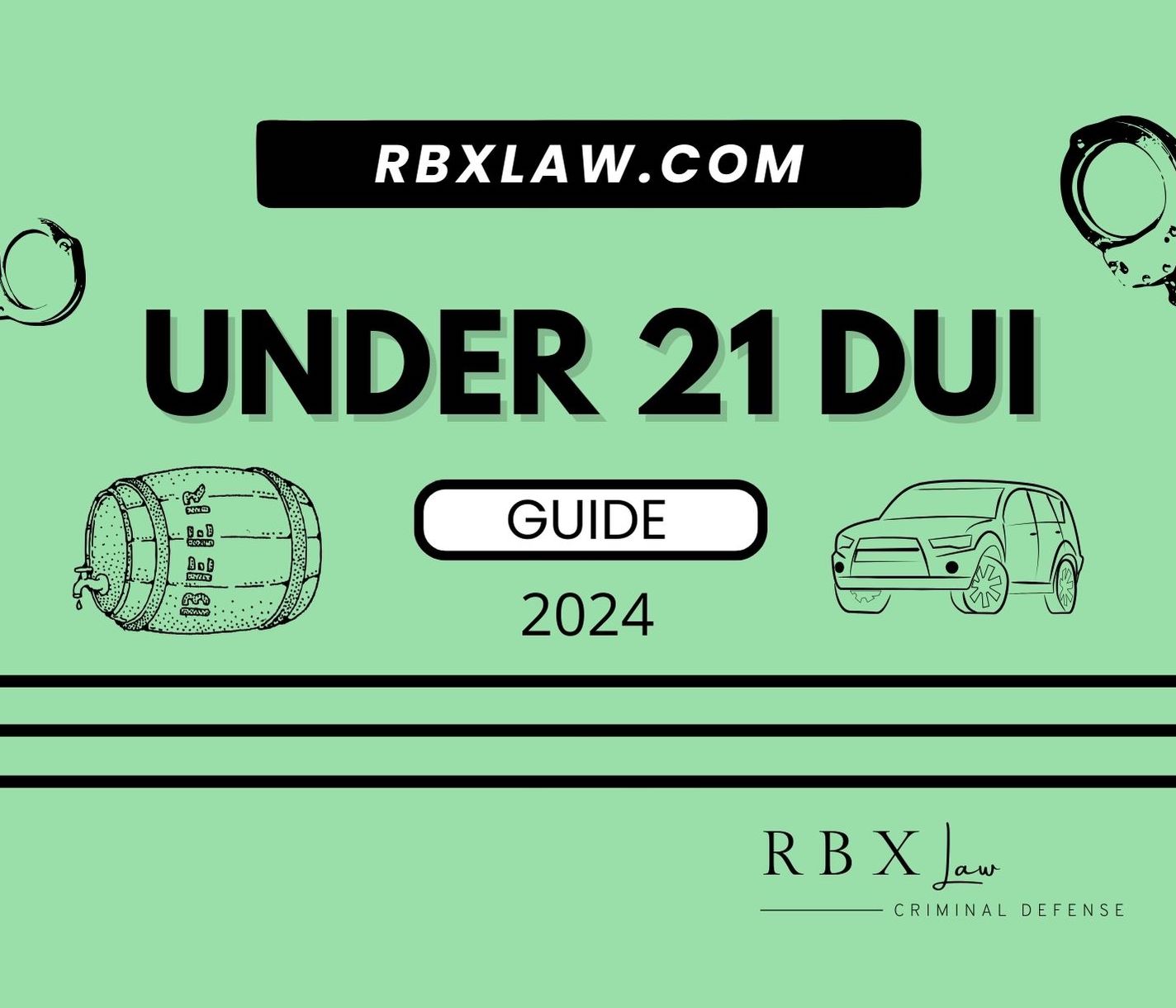This guide goes over the process of an under 21 DUI. This includes arrest, DMV hearing, loss of license, temporary driver’s license, restricted license, and court proceedings.
- Arrest
- Temporary Driver’s License
- License Suspension
- Court Consequences
- Under 21 DUI v. Over .08% DUI
- Restricted License
Under 21 DUI Arrest ⬆️
Law enforcement must have a justification for conducting a traffic stop. This is usually a traffic violation such as speeding or weaving between lanes. Law enforcement must also justify their reason for conducting a DUI investigation and a DUI arrest. If the officer cannot justify their conduct, the court can exclude the blood or breath sample from the case. Contact an attorney to learn more about law enforcement justification (also known as probable cause). You may refuse all field sobriety tests.
Blood Alcohol Content ⬆️
Persons under 21 years of age cannot drive with any amount of alcohol in their system. This means that law enforcement will arrest a person under 21 if they have a blood alcohol percentage of .01% or more.
Refusal to Do Chemical Tests ⬆️
Persons under 21 years old must provide a sample of their blood or breath if a law enforcement officers requests it. Refusal to provide a sample results in a 1-year license suspension. This includes a preliminary alcohol screening (PAS) test. You must also provide a sample if you are on probation or parole. Failure to do so could result in a probation or parole violation.
Temporary Driver’s License ⬆️
Upon arrest for DUI, law enforcement takes the driver’s license and provides a temporary paper license that is good for 30 days. The temporary license has information on how to contact the DMV to prevent your license from being suspended. Law enforcement also provides a citation which includes a future court date, the charges, the arresting officer and their agency, and the citation number.
You must request a DMV hearing within 10 days our your license will be suspended 30 days after your arrest. If you request a DMV hearing, the DMV will send you a new temporary license that will last until your DMV hearing.
Under 21 DUI License Suspension ⬆️
The DMV will suspend the driver’s license for 1 year for under 21 DUI. The DMV suspends the driver’s license if:
- Law enforcement informed the DMV that they arrested the person for driving with a blood alcohol level of .01% or greater.
- The DMV will suspend the license 30 days from the date of arrest.
- A criminal court convicts the person of Vehicle Code sections 23136 or 23140.
- The DMV will immediately suspend the license.
Court Consequences ⬆️
Conviction of underage DUI is an infraction. Therefore it is not punishable by jail time or probation. There is no fine if the blood alcohol level was .01% – .04%. If the blood alcohol was .05% – .07%, the maximum fine is $100. If the blood alcohol is .08% or higher, the maximum fine is $1,000 and the maximum jail sentence is 6 months. The punishment for a DUI over .08% increases if the person has prior DUI convictions, the Blood Alcohol Content is over .20%, or if the driver injured someone while driving.
Under 21 DUI vs. Over .08% DUI ⬆️
There are two different laws that criminalize DUI under 21 years of age. Vehicle Code section 23136 makes it unlawful for persons under 21 to drive with .01% or more Blood Alcohol Concentration. Vehicle Code section 23140 makes it unlawful for persons under 21 to drive with .05% or more Blood Alcohol Concentration. In addition, persons under 21 years old can be charged with driving under the influence under Vehicle Code section 23152 if their Blood Alcohol Concentration is .08% or greater.
| Under 21 DUI (BAC .01% – .04%) Vehicle Code 23136 | Under 21 DUI (BAC .05% – .07%) Vehicle Code 23140 | 1st DUI (BAC .08% – .14%) Vehicle Code 23152 | |
| License Suspension | 1 year | 1 year | 6 months |
| Probation Length | None | None | 3-5 years |
| Charge Type | Infraction | Infraction | Misdemeanor |
| Maximum Fine | None | $100 | $1,000 |
| Maximum Jail Time | None | None | 6 months |
| DUI Class | None | 3 months (if the driver is over 18 years old) | 3 months |
Restricted Driver’s License ⬆️
The only form of restricted license available for an underage DUI conviction is a “critical needs” license. To obtain a critical needs license, the driver must show that
- School or other transportation facilities are inadequate for regular attendance at school and at activities authorized by the school.
- Reasonable transportation facilities are inadequate and operation of a vehicle by a minor is necessary due to illness of a family member.
- Transportation facilities are inadequate, and use of a motor vehicle is necessary in the transportation to and from the employment of the applicant and the applicant’s income from such employment is essential in the support of the family, or where the applicant’s operation of a motor vehicle is essential to an enterprise from which an appreciable portion of the income of the family will be derived.
The existence of public transportation at reasonable intervals within one mile of the residence of the applicant may be considered adequate grounds for refusal of a critical needs license.

